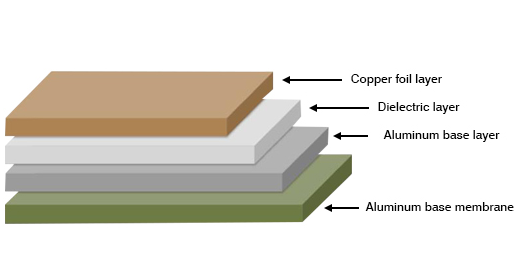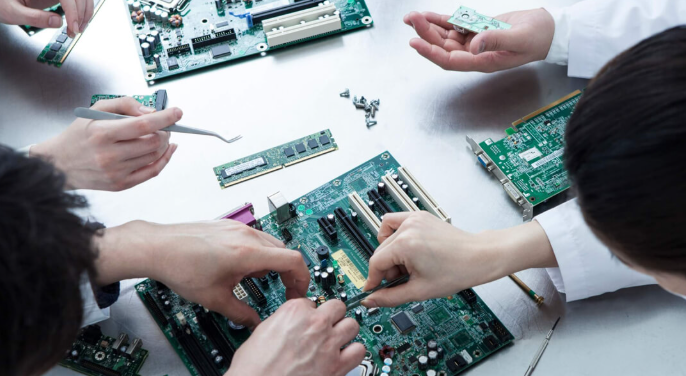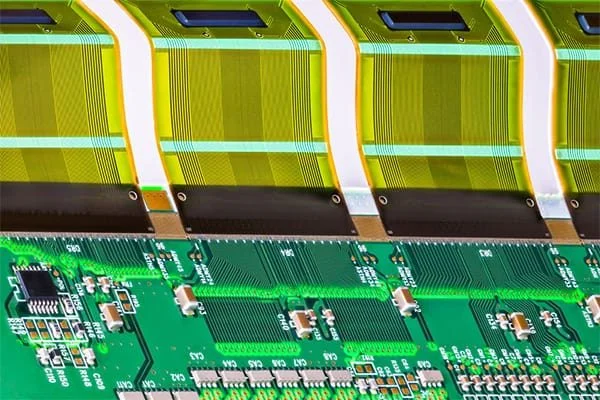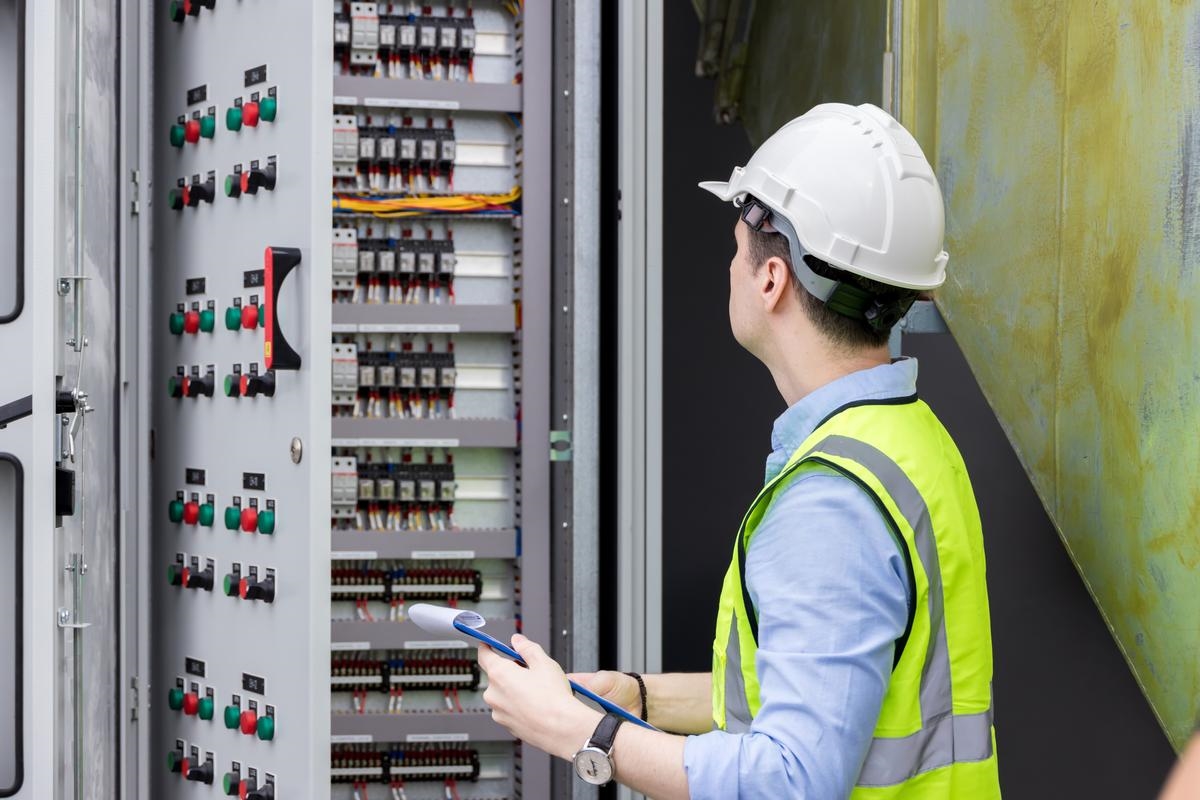If you're searching for the best aluminum PCB suppliers to meet your project needs, you've come to the right place. Finding a reliable partner for aluminum PCB manufacturing, prototyping, and assembly can make or break your product's success. In this guide, we'll explore what makes a supplier stand out, key factors to consider when choosing one, and how to ensure you get high-quality PCB fabrication services. Whether you're working on LED lighting, automotive electronics, or power systems, we'll help you navigate the process of selecting the ideal partner for aluminum PCB prototyping and PCB assembly services.
Why Aluminum PCBs Matter in Modern Electronics
Aluminum PCBs, also known as Metal Core PCBs (MCPCBs), are a specialized type of circuit board designed for applications requiring excellent heat dissipation. Unlike traditional FR4 boards, aluminum PCBs feature a metal base layer—typically aluminum—that conducts heat away from critical components. This makes them ideal for high-power applications like LED lighting, power converters, and automotive systems where thermal management is crucial.
The demand for aluminum PCBs has surged in recent years due to their ability to handle high temperatures and improve the lifespan of electronic components. For instance, in LED lighting, aluminum PCBs can dissipate heat at rates up to 10 times higher than standard FR4 boards, ensuring consistent performance and preventing overheating. With such unique benefits, partnering with reliable PCB suppliers who specialize in aluminum boards is essential for achieving optimal results.

What to Look for in Aluminum PCB Manufacturers
Choosing the right aluminum PCB manufacturer involves evaluating several critical factors to ensure quality, reliability, and cost-effectiveness. Here are the key aspects to consider when selecting a supplier for PCB fabrication services:
1. Expertise in Aluminum PCB Fabrication
Not all manufacturers have the specialized equipment and knowledge needed to produce high-quality aluminum PCBs. Look for suppliers with proven experience in handling metal core boards, as the fabrication process differs significantly from standard PCBs. For example, aluminum PCBs require precise drilling and routing to avoid damaging the metal layer, and the dielectric material must be carefully chosen to balance thermal conductivity and electrical insulation.
A capable manufacturer will offer detailed specifications, such as thermal conductivity values ranging from 1.0 to 3.0 W/m·K for standard aluminum PCBs, ensuring your boards meet the thermal demands of your application. Prioritize suppliers who provide clear documentation and testing data to validate their expertise.
2. Quality Assurance and Certifications
Quality is non-negotiable when it comes to aluminum PCBs, as even minor defects can lead to thermal failures or short circuits. Reliable PCB suppliers adhere to strict quality control standards and hold certifications like ISO 9001 for manufacturing processes and IPC standards for PCB design and assembly. These certifications indicate that the supplier follows industry best practices, ensuring consistent and dependable results.
Additionally, check if the supplier conducts thorough testing, such as impedance control with tolerances as tight as ±10%, or thermal cycling tests to simulate real-world conditions. Such measures guarantee that your aluminum PCBs will perform reliably under stress.
3. Customization Options for Aluminum PCB Prototyping
Every project has unique requirements, especially during the prototyping phase. A good supplier offers flexible customization options for aluminum PCB prototyping, allowing you to test different designs, layer counts, and thermal properties before moving to full-scale production. Whether you need single-layer aluminum boards for simple LED applications or multi-layer designs for complex power systems, the supplier should accommodate your specifications.
For instance, some projects may require specific dielectric thicknesses between 0.075mm and 0.15mm to achieve the desired thermal resistance. Ensure the supplier can deliver tailored solutions to match your exact needs without compromising on turnaround time.
Key Benefits of Partnering with Reliable PCB Suppliers
Working with trusted suppliers for aluminum PCB manufacturing and PCB assembly services offers several advantages that directly impact your project's success. Here's why reliability matters:
1. Faster Turnaround Times
Time is often a critical factor in electronics development. Reliable suppliers streamline their processes to offer quick turnaround times, especially for aluminum PCB prototyping. Many top suppliers can deliver prototypes in as little as 24-48 hours for urgent projects, ensuring you stay on schedule without sacrificing quality.
2. Cost-Effective Solutions
While aluminum PCBs can be more expensive than traditional boards due to the materials and specialized manufacturing process, a reliable supplier helps optimize costs. They achieve this through efficient production techniques, bulk material sourcing, and minimizing waste. Some suppliers even offer tiered pricing based on order volume, allowing you to scale production affordably.
3. Comprehensive PCB Assembly Services
Beyond fabrication, many projects require full PCB assembly services, including component sourcing, soldering, and testing. A supplier that provides end-to-end solutions simplifies your workflow by handling everything from bare board production to fully assembled units. This integrated approach reduces the risk of errors during assembly and ensures compatibility between the aluminum PCB and mounted components.
How to Evaluate Suppliers for PCB Fabrication Services
With so many options available, narrowing down the best aluminum PCB manufacturers can feel overwhelming. Use these practical steps to evaluate potential partners and make an informed decision:
1. Request Detailed Quotes and Capabilities
Start by requesting quotes from multiple suppliers, but don’t focus solely on price. Pay attention to the details of their capabilities, such as the minimum trace width they can achieve (often as low as 0.1mm for high-precision boards) or the maximum board thickness they support (typically up to 3.2mm for aluminum PCBs). A transparent supplier will provide a breakdown of costs, lead times, and technical specifications upfront.
2. Review Customer Feedback and Case Studies
Look for testimonials or case studies from previous clients, especially those in industries similar to yours, such as automotive or LED lighting. Positive feedback about on-time delivery, product quality, and customer support is a strong indicator of a supplier’s reliability. Case studies can also reveal how the supplier handles complex challenges, like achieving specific impedance values for high-frequency applications (e.g., 50 ohms ±5%).
3. Assess Communication and Support
Effective communication is vital, especially during the design and prototyping stages. Choose a supplier with responsive customer support who can address technical queries promptly. For example, if you’re unsure about the optimal dielectric material for thermal conductivity (often rated between 1.5-2.2 W/m·K), the supplier should offer expert guidance to help you make the right choice.

Applications of Aluminum PCBs and Supplier Specialization
Aluminum PCBs serve a wide range of industries, and different suppliers may specialize in specific applications. Understanding your project’s needs can help you select a supplier with relevant expertise. Here are some common applications:
- LED Lighting: Aluminum PCBs are widely used in LED lighting due to their superior heat dissipation, often handling power densities up to 5 W/in2. Suppliers specializing in this area focus on thin dielectric layers for maximum thermal transfer.
- Automotive Electronics: In automotive systems, aluminum PCBs withstand harsh environments with temperature ranges from -40°C to 125°C. Suppliers for this sector prioritize durability and vibration resistance.
- Power Electronics: For power converters and inverters, aluminum PCBs manage high current loads with minimal thermal resistance. Look for suppliers offering thick aluminum cores (up to 2mm) for enhanced performance.
Matching your application with a supplier’s area of expertise ensures better results and minimizes risks during production.
Scaling from Prototyping to Full Production
One of the biggest challenges in PCB development is transitioning from aluminum PCB prototyping to large-scale production. A reliable supplier supports this journey by offering scalable services. During prototyping, they help refine your design, ensuring signal integrity with controlled impedance (e.g., maintaining 75 ohms for RF applications) and thermal performance. Once the design is finalized, they seamlessly ramp up production without compromising quality.
Suppliers with advanced manufacturing facilities can handle batch sizes ranging from 1 to 10,000+ units, providing consistency across all stages. This scalability is especially important for industries like consumer electronics, where demand can spike unexpectedly.
Why Choose Us for Aluminum PCB Solutions
At ALLPCB, we understand the unique demands of aluminum PCB projects. Our state-of-the-art facilities and experienced team deliver top-tier PCB fabrication services tailored to your needs. Whether you’re exploring aluminum PCB prototyping or require full PCB assembly services, we prioritize quality, speed, and affordability. With rigorous testing protocols and a commitment to customer satisfaction, we’re here to be your trusted partner in bringing innovative electronics to life.
Our capabilities include handling complex designs with precision, achieving trace widths as fine as 0.075mm, and offering thermal conductivity options up to 3.0 W/m·K for high-performance applications. From initial concept to final assembly, we provide end-to-end support to ensure your project succeeds.

Final Thoughts on Selecting Aluminum PCB Suppliers
Finding the right aluminum PCB manufacturer is a critical step in ensuring the success of your electronic projects. By focusing on expertise, quality assurance, customization, and scalability, you can identify reliable PCB suppliers who meet your specific requirements. Whether you’re in need of aluminum PCB prototyping for a small-scale test or comprehensive PCB assembly services for mass production, a trusted partner makes all the difference.
 ALLPCB
ALLPCB







